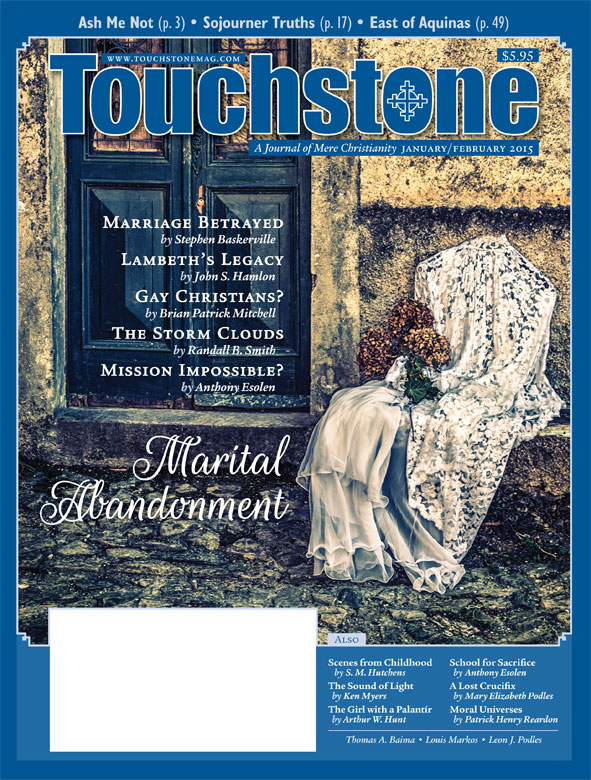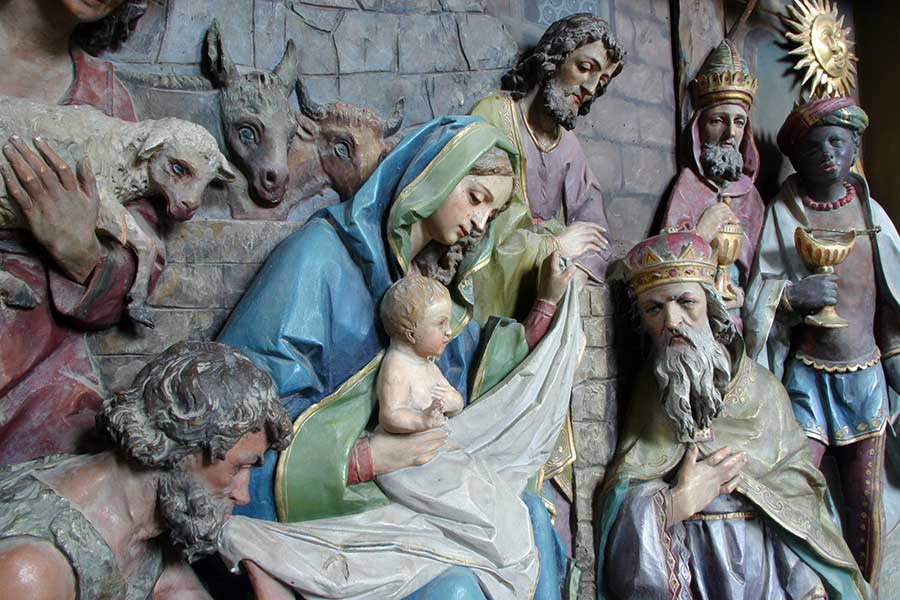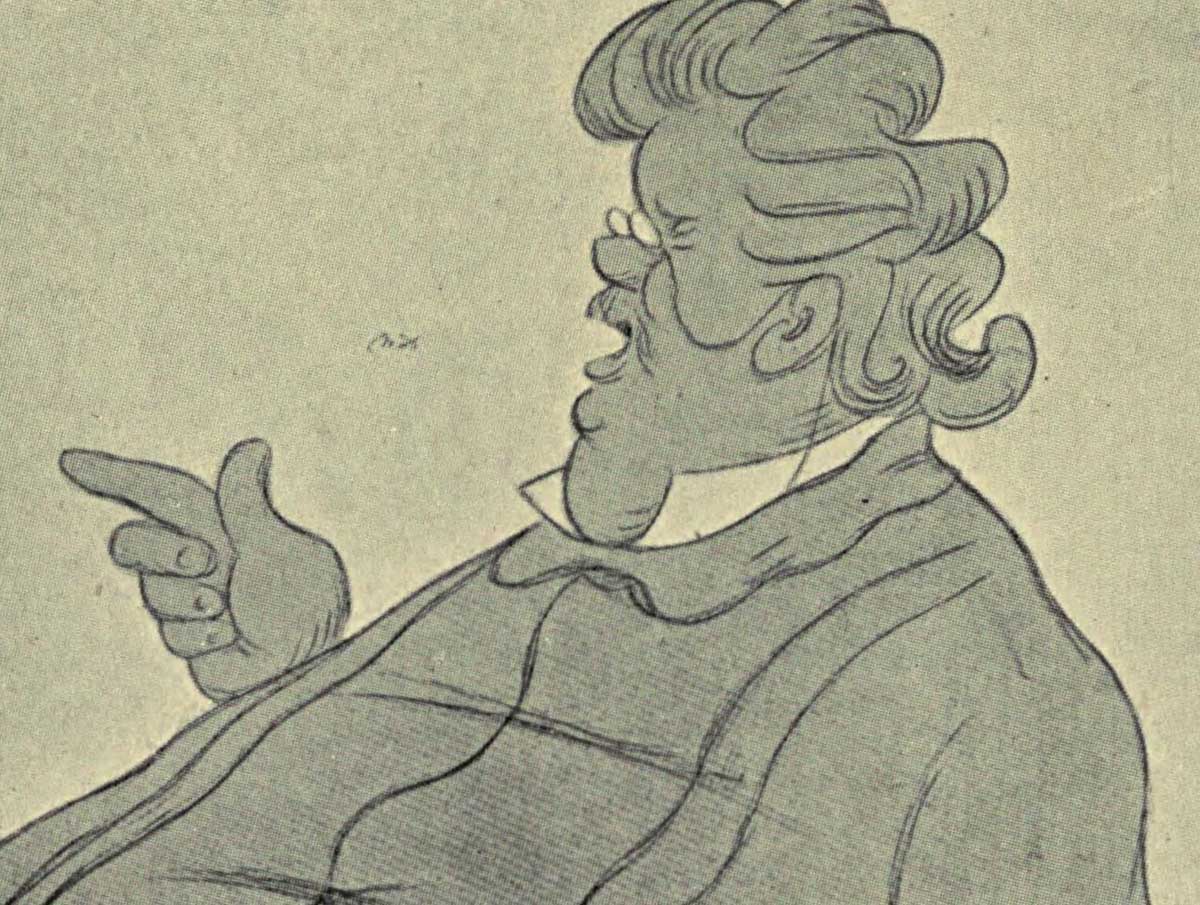Column: As It Is Written . . .
Two Moral Worlds
The invisible, extremely mysterious activity of the hidden God in the Book of Esther is profitably contrasted to his clear, open, and miraculous intrusions into history in the Book of Daniel. When, for instance, the Lord intervenes to save his servants in the fiery furnace, there is nothing subtle about it.
The clarity attendant on God's activity in Daniel also marks its presentation of the moral order. There are no shaded ethical subtleties in Daniel's world. Right-or-wrong choices are easily identified, determined by an either/or. The choices are hard, but they are never -uncertain.
This book, then, provides a series of incidents in which Daniel and other brave souls simply stand up and tell the authorities, "No." "No, Your Majesty," they declare, "we decline to bow down and worship your stupid statue; we hold your fiery furnace in contempt; we will persist in praying to the true God three times each day; your lions' den does not in the least intimidate us, and we would rather perish than violate our kosher laws. So there, King!"
This whole moral stance is summed up in the declaration to Nebuchadnezzar: "Now it may be that our God whom we serve—who is able to deliver us from the burning fiery furnace—will grant deliverance from your hand, O king. But if not, be assured of this, O king: We do not serve your gods, nor will we worship the gold image you have set up" (Dan. 3:18).
From the fixed and clear moral universe portrayed in Daniel, let us turn to that of Esther. A first feature we observe is that Esther, with respect to her moral obligation, is just as resolute as the three youths in the fiery furnace. She knows that she endangers her life by appearing before Ahasuerus, but she does not flinch from the responsibility.
But here we encounter an irony: Esther's very similarity to the young men facing Nebuchadnezzar illustrates her profoundly different moral situation. The characters in Daniel, in each of their moral choices, appeal to the Law of God. They refuse to adore the statue, because it would violate the Decalogue. They decline to partake of the king's meats, for fear of eating unclean food. That is to say, the Torah, God's revealed will, governs their moral choices. They live in a world where their duties are spelled out. God's commandments determine the outline of the moral universe in the Book of Daniel. Perhaps we may call the moral order in this book a "morality of essence," in the sense that the being of things establishes, a priori, man's moral duties. Obedience requires courage, but little thought and no imagination.
Existential Danger
This is not the case when we turn to the Book of Esther. The morality on trial in this book is not a "morality of essence." Perhaps it should be called, rather, an "existential morality," meaning that the duties of the devout people in this book are revealed to them, not by the Torah, not by an explicitly revealed set of prescriptions, but by the concrete circumstances in which they find themselves. Esther is not tempted to commit idolatry, nor is her fidelity to the kosher laws put to the test. Rather, she is faced with an existential situation. She recognizes a moral responsibility inherent in the palpable circumstances of her personal existence. Nothing in the Torah dictates what Esther must do. Only her morally sensitive conscience can guide her.
Her moral decisions are arguably, in this respect, more difficult than those of Daniel and his compatriots. While Mordecai and Esther do not compromise any more than Daniel and his friends do, they are obliged to think harder about how to remain morally faithful. They must use imagination and figure out a way through the concrete dilemma imposed on their lives.
Part of their more severe difficulty, perhaps, is the sheer size and gravity of the threat they face. The Book of Esther poses a dilemma far worse than any encountered in the Book of Daniel: the whole Jewish people is in danger, not simply these few faithful Jews. Esther and Mordecai must save everybody. All Jews are at risk. What is at issue in this book is truly an Endlösung der Judenfrage.
Unlike Daniel and his friends, consequently, -Esther and Mordecai do not have the luxury of simply keeping their hearts pure and facing a martyr's death. They are responsible for everybody. Consequently, they must use their heads and devise some creative plan to circumvent the disaster that hangs over their countrymen.
Patrick Henry Reardon is pastor emeritus of All Saints Antiochian Orthodox Church in Chicago, Illinois, and the author of numerous books, including, most recently, Out of Step with God: Orthodox Christian Reflections on the Book of Numbers (Ancient Faith Publishing, 2019).
subscription options
Order
Print/Online Subscription

Get six issues (one year) of Touchstone PLUS full online access including pdf downloads for only $39.95. That's only $3.34 per month!
Order
Online Only
Subscription

Get a one-year full-access subscription to the Touchstone online archives for only $19.95. That's only $1.66 per month!
bulk subscriptions
Order Touchstone subscriptions in bulk and save $10 per sub! Each subscription includes 6 issues of Touchstone plus full online access to touchstonemag.com—including archives, videos, and pdf downloads of recent issues for only $29.95 each! Great for churches or study groups.
Transactions will be processed on a secure server.
more from the online archives
calling all readers
Please Donate
"There are magazines worth reading but few worth saving . . . Touchstone is just such a magazine."
—Alice von Hildebrand
"Here we do not concede one square millimeter of territory to falsehood, folly, contemporary sentimentality, or fashion. We speak the truth, and let God be our judge. . . . Touchstone is the one committedly Christian conservative journal."
—Anthony Esolen, Touchstone senior editor










